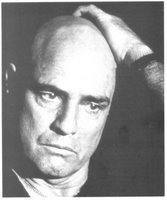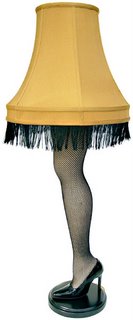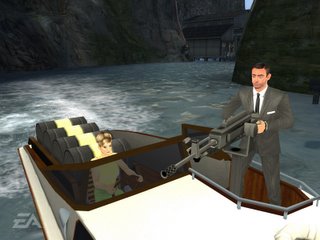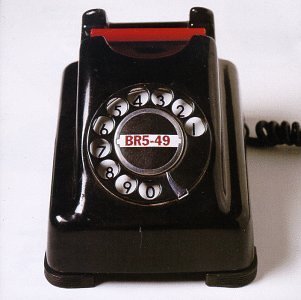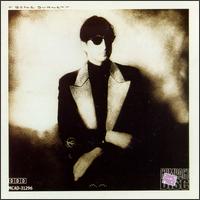I should state at the outset that my first inclination is to give this book a silent pass. I've been told, though, that members of my larger family occasionally drop by to read my thoughts. I don't know if my infrequent testing of evangelical waters surprises them, gives them hope, or causes them grievous disappointment, but I do feel compelled to acknowledge those times when I look over my shoulder at a pasture that to my mind has grown inhospitable to my soul. If nothing else, I know
Gideon Strauss stops by from time to time — this one's for you,
Tathagata!
"A guide to life's greatest challenge," claims
Unspeakable's cover blurb. These bits of ad-copy are usually just publisher's hyperbole, often stamped on the book-jacket without the author's knowledge or consent. It might well have been approved by Guinness, however: he attempts precisely that, and he frequently achieves acute insight. Guinness's perspicacity, however, is not unblinkered — is even, at times,
ungenerous — a trait you can expect me to mirror here and now.
First some perspective: this is not my first exposure to Dr. Guinness. I first encountered him when I was an ardent contributing member of a church youth group. My zeal and idealism set me up for frequent despair (still does). More often than not, the resulting anguish brought me to my father's library where I searched the stacks for some morsel of encouragement. In my late teens, I pulled out a large book with a doozy of a title:
The Dust of Death: A Critique of the Establishment and the Counter Culture and the Proposal for a Third Way — by Os Guinness. Even now my heart beats with hopeful anticipation! "
The proposal for a third way"! A quick look at the back only added to my hopes: this Guinness guy sported a trim Van Dyke beard (anti-establishment!) and was an heir to the famed brewery giant (establishment)! I pinched it, and read it in the space of a week.
Guinness's coverage of the Counter Culture was dizzying. He catalogued not just the usual American suspects (the Weathermen, the Diggers, and the Black Panthers) but introduced me to the antics of those zany bike-pedaling anarchists in Amsterdam:
Provo. I was transfixed by this generational litany of idealistic rage that expressed itself in both tragedy (the Weathermen/Black Panthers) and comedy (Diggers/Provo). As a bonus, I could take absolute comfort in Guinness's clear-sighted over-arching critique that was, he assured me, his effort to "reclaim the culture" The proof? He came out as a staunch advocate of
Larry Norman's evangelical rock & roll.
I haven't read that book in over 20 years, and I still recall various tidbits that delighted me. I think I was just encouraged that someone could be intelligent, culturally observant and pious (a word that, I still believe, has been unfairly maligned). But I lost track of Guinness not long after that — pretty much around the time I got tired of listening to Larry Norman. Norman wasn't doing anything particularly innovative with his art, and it seemed to me that neither was Guinness — a lot of finger-wagging, and "here's where you're wrong and scripture is right". Guinness might claim with some justification that what he does is somewhat distinct from "artistry", but I would say otherwise. I think Jean Luc Godard hit the nail on the head when he said, "The way to properly critique a movie is to make another movie." And in that manner, Guinness has been riffing out the ink-and-paper equivalent of Normanesque evangelical rock & roll for the last 20 years.
Guinness's evangelical rock & roll, while "classic," is not without nuance. It seems he has cultivated a profound kinship with many perspectives of Orthodox Judaism. His insight into the work and person of Elie Wiesel, for instance, is among the most unique and penetrating I've seen, and he speaks with genuine authority on the thought of Primo Levi, Simon Wiesenthal and Philip Hallie. There
is some shared ground in the "Judeo-Christian" landscape, even for an evangelical, and Guinness finds it and cultivates it.
Alas, he does not do so for the Eastern religions. Perhaps life is too short - perhaps there is only so much one man can achieve, intellectually and spiritually - but his encapsulation of eastern thought and teaching, while strenuous, is not empathetic. Worse than that, it is reductionist and
unsympathetic, despite his protests to the contrary. In the wake of Vietnam and the Khmer Rouge in Cambodia, Buddhists have done a great deal of soul-searching on the nature of evil, and have a great deal more to say, with a great deal more nuance, than Guinness suggests.
On this issue Guinness plays the numbers game, and is to some degree right in doing so, by pointing out how the "western" religions are numerically more prone to address injustice than the "eastern" ones have been. But on the issue of Vietnam alone, it would do him and all of North American evangelicalism well to acknowledge a)
the profound and unrelenting trans-generational carnage that our chemical warfare has caused, and b) that
the chief efforts of relief and redress have not been "Christian", but have come from these same eastern religions Guinness paints indirectly as apathetic.
Perhaps I'm being overly-simplistic of current political realities. Guinness
does address the genocides of the Holocaust, Bosnia/Serbia, and Rwanda, as well as the horrors of My Lai and Abu Ghraib among others. Worthy coverage, to be sure. The current author photo portrays a smiling bald man who no longer sports the Van Dyke. It is no longer in him to sit up all night and write a book recounting a litany of what has transpired and how little has been done to acknowledge/stem the tide.
Personally, my artistic and spiritual sensibilities
must include and incorporate an "eastern" sensibility. It's all well and good to assert with Solzhenitsyn that "The line dividing good and evil cuts through the heart of every human being"; it's something a touch more suggestive to say "our hearts are black and white like a zebra's stripes" (Guinness). But there are Buddhists who would assert something even more controversial:
that our boldest efforts to do good are most easily employed to do the very opposite when we are not intimately attentive to the subtleties of their method.
Guinness's current efforts to transform the culture amount to a cry to wake up and do
something. As such, I simply can't recommend this book, except to evangelicals who are horrified at the mass-indulged Magick-think behind
The Prayer of Jabez. But in the face of such popular, facile, evangelical best-sellers and the larger, more-horrific realities they permit, I don't mind echoing the sentiments of the French Huguenots in the village of Le Chambon, who rescued thousands of Jewish children from the Nazis, and who Guinness echoes as well: "Always ready to help" And conversely (Solzhenitsyn, via Guinness): evil might seek to dominate the world through The Lie, "but not through me."




